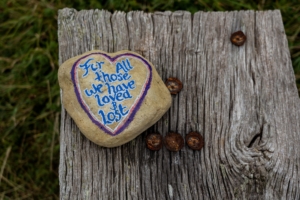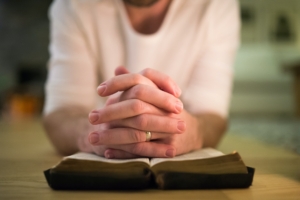We all experience grief at some point, and this universal experience darkens our doorsteps in various ways. Grief is never easy, regardless of how it comes to us. Losing something or someone that meant something to you can trigger a lifelong process of coming to terms with that loss. Grief can be harder to process when it isn’t acknowledged, validated, or supported by your family, friends, or community.
When your grief is overlooked or minimized by others, it can leave you feeling isolated and struggling in silence, which makes it even harder to cope with the loss. There are effective coping strategies available to help you manage this form of grief.
Disenfranchised Grief: What is it?
Typically, when a person experiences loss, those around them perceive that loss as significant enough to mourn. Each society, culture, family, and community has a set of values that informs what matters, and this, in turn, helps to define what counts as loss. When a loss occurs and your community recognizes it as such, it activates communal rituals such as wakes, funerals, or memorials, as well as concessions like taking time off work.
 Disenfranchised grief is what occurs when there is no communal or social recognition of the type of loss or mourning. Your loss goes unseen, or it is misunderstood and lacks the recognition and support of the people around you. Some types of losses that others might not recognize, pay heed to, or give any weight to include unfulfilled dreams, the loss of a pet, estrangement from a loved one, a miscarriage, the death of an ex-partner, or the sorrow of job loss.
Disenfranchised grief is what occurs when there is no communal or social recognition of the type of loss or mourning. Your loss goes unseen, or it is misunderstood and lacks the recognition and support of the people around you. Some types of losses that others might not recognize, pay heed to, or give any weight to include unfulfilled dreams, the loss of a pet, estrangement from a loved one, a miscarriage, the death of an ex-partner, or the sorrow of job loss.
There are many different examples of disenfranchised grief in the Bible. Reading stories about how others navigated their hidden and unseen grief can be a way to validate your own grief and offer you hope. Scripture also discloses certain strategies that may be helpful for you as you try to cope with disenfranchised grief.
Some Biblical Examples of Disenfranchised Grief
There are many stories told throughout Scripture that describe situations of disenfranchised grief. One example is the story of Job, who lost his children, his vast wealth, and his bodily integrity and health. At first, Job’s friends sat in silence with him in solidarity, but eventually they dismissed his grief and lament toward God through their misguided advice, and they failed to validate his pain.
 Job’s friends felt his situation was his own fault, and they wanted to silence his lament because they thought he was guilty of some sin that had triggered the calamity in his life. Ultimately, Job’s honest laments were heard by God, and the Lord vindicated him even while also rebuking Job’s friends and calling Job to account for his accusations against the Lord (Job 2:11-13; Job 38-42).
Job’s friends felt his situation was his own fault, and they wanted to silence his lament because they thought he was guilty of some sin that had triggered the calamity in his life. Ultimately, Job’s honest laments were heard by God, and the Lord vindicated him even while also rebuking Job’s friends and calling Job to account for his accusations against the Lord (Job 2:11-13; Job 38-42).
Another biblical example is Hagar, Sarah’s Egyptian maidservant, whom Abraham and Sarah roped into their plot to have a child on their own terms. Hagar bore a son to Abraham, but it caused friction when Sarah gave birth to Isaac, the child of promise.
Hagar experienced profound grief when she was cast out into the wilderness with her son Ishmael. Despairing of life, Hagar’s pain was unseen by Abraham’s household, but the Lord heard her cries and sent an angel to provide her with comfort and hope (Genesis 21:8-21).
A last example is about Tamar’s shame. In 2 Samuel 13, we read about Tamar, one of King David’s daughters, who endured great suffering after being violated by her half-brother Amnon. To add sorrow upon sorrow, her grief was compounded by the lack of justice and support. Her only source of comfort was her brother Absalom, who used the incident to fuel his own political ambitions. Her story is a testament to her pain, courage, and integrity.
These and many other stories describe grief and loss that people experience, but others around them don’t see it as such. Their grief is overlooked by those closest to them, which increases their sense of isolation at a time when they needed support most.
The Common Causes of Disenfranchised Grief
There are a few common scenarios in which disenfranchised grief takes place. Disenfranchised grief is grief that other people don’t acknowledge for one reason or another. If the relationship falls outside what is typically understood as common bonds, it might not be recognized. Conventional relationships like spouses, mentors, friends, and family members are recognized, while others aren’t.
 Disenfranchised grief might also be rooted in what may be termed invisible losses, which are losses that are intangible. This includes grief from life changes like getting old, one’s health deteriorating, being unemployed, having unfulfilled dreams, or experiencing shifts in one’s identity. These kinds of losses are often overlooked because they are harder to identify or quantify.
Disenfranchised grief might also be rooted in what may be termed invisible losses, which are losses that are intangible. This includes grief from life changes like getting old, one’s health deteriorating, being unemployed, having unfulfilled dreams, or experiencing shifts in one’s identity. These kinds of losses are often overlooked because they are harder to identify or quantify.
Another cause of disenfranchised grief is when the loss is tied to something that is stigmatized or frowned upon in society. If the grief is linked to addiction, suicide, or abortion, there’s a stigma attached to it that makes it harder for people to express their emotions openly, or for those emotions to be readily accepted by others.
There may also be certain expectations held by one’s community, culture, or other sources of norms, like your faith community. These may dictate what can legitimately be mourned, and there may also be accompanying pressure to grieve in a socially sanctioned manner, which can exclude more personal expressions of sorrow. Sometimes grief becomes disenfranchised because time has passed, and people think you ought to be ‘over it’ by now.
How It Feels to Experience Disenfranchised Grief
If you are grieving a loss that the people around you don’t consider a loss, or if they consider your grief over it to be inappropriate, what does that do to you, and how does that feel? When you experience disenfranchised grief, it can leave you with a feeling of isolation. You feel alone in your grief because it lacks recognition from others. Without support and in the absence of societal rituals that help process grief, the healing process can be delayed.
Another potential way to experience disenfranchised grief is that it can leave you questioning whether your grief is even legitimate to begin with. If other people don’t recognize your grief, it can feel like maybe you shouldn’t be grieving. This self-doubt causes confusion and adds turmoil to an already challenging situation.
 To compound the feelings of self-doubt, guilt, and shame that could accompany disenfranchised grief, you might also find yourself internalizing your feelings of hurt, sadness, or anger that often accompany grief.
To compound the feelings of self-doubt, guilt, and shame that could accompany disenfranchised grief, you might also find yourself internalizing your feelings of hurt, sadness, or anger that often accompany grief.
When you don’t have an outlet for your emotions or people around you who support your expression of grief, you could just end up internalizing it, which can result in poorer physical and mental health.
How to Cope with Disenfranchised Grief
Disenfranchised grief can be a painful experience to go through. It can compound the sorrow, particularly when you begin to question your own responses to your loss. It can result in poorer mental and physical health from internalizing the grief instead of expressing it. Healing and hope are possible, and you can find effective ways to cope with the loss.
Recognize and acknowledge your own grief Your loss is valid, as unconventional or socially unrecognized as it may be. Even though others may not recognize it, do yourself the favor of recognizing it for what it is. You can, like Hannah, Job, Hagar, and many others in Scripture, pour your heart out to the Lord, knowing that He knows what you’re going through and understands your heartache.
Memorialize the loss When you’ve encountered loss, it’s important to honor it, whether by planting a tree, praying, lighting a candle, journaling, scrapbooking, or some other way to mark the loss. Creating personal rituals allows you to mark the loss and its impact on your life, even when time has passed.
Seek support The grief journey can be a lonely one, particularly if you’re dealing with disenfranchised grief. Joining a support group and connecting with other people who have suffered a similar loss can provide you with a space that validates your experience and where you are understood without needing to explain your loss.
Seek professional help A Christian grief counselor can help you by listening to your experience of grief without passing judgment. You can express your thoughts and emotions freely with your counselor, which can validate your grief and provide room for your grief to be met with God’s comfort and peace. As you reflect on your loss, you can begin to emerge from the depths as you learn to cope.
Your counselor can help you with tools to process your grief and cope with the physical, mental, and emotional challenges grief brings. You can reach out to a grief counselor to begin working through your grief. Contact our office today to learn more.
Photos:
“For All Those…”, Courtesy of Nick Fewings, Unsplash.com, CC0 License; “Watching the Water”, Courtesy of Pierre Bamin, Unsplash.com, CC0 License; “Prayer”, Courtesy of Getty Images, Unsplash.com, Unsplash+ License; “Counseling”, Courtesy of Getty Images, Unsplash.com, Unsplash+ License









